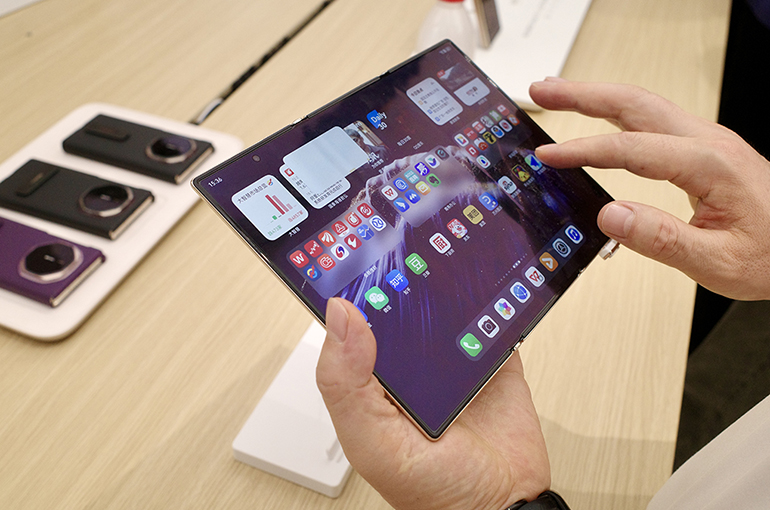 Huawei Launches Tiangong Initiative to Invest USD141 Million in HarmonyOS AI Ecosystem
Huawei Launches Tiangong Initiative to Invest USD141 Million in HarmonyOS AI Ecosystem(Yicai) Sept. 22 -- Chinese tech giant Huawei Technologies has launched the Tiangong Initiative, pledging to invest CNY1 billion (USD140.6 million) in funds and resources to support development of the HarmonyOS artificial intelligence ecosystem.
The Tiangong Initiative will focus on incubating over 10,000 AI-native meta-services, 1,000 intention frameworks, and 5,000 intelligent agents, and accelerate the development of AI-native components, including meta-computing platforms, Herman Zhu, president of Huawei’s consumer cloud service business, said at Huawei Connect 2025 on Sept. 20.
The number of devices running on HarmonyOS 5, Huawei's proprietary, non-Android operating system, has exceeded 17 million, according to the Shenzhen-based company’s latest data. But HarmonyOS still faces challenges in building a robust app ecosystem compared with iOS and Android despite rapid growth, industry insiders note, adding that the Tiangong Initiative is Huawei’s response to closing this gap.
Huawei will open-source its Xiaoyi intelligent agent platform, offering four development models and more than 50 development components to lower the barrier to creating intelligent agents, Zhu noted.
The world’s tech titans are racing to dominate the intelligent agent arena. For example, Google rides its strong AI expertise to stay ahead in voice assistants, while Apple Intelligence is reinventing how apps behave at the OS level.
Based on HarmonyOS’ architecture, Huawei has built a seamless cross-device AI experience, allowing users to switch AI services effortlessly between smartphones, tablets, and in-car systems.
At Huawei Connect, the company showcased its Xiaoyi Task Space function, which can autonomously schedule over 120 tools and third-party agents across eight major scenarios, including office productivity and travel planning.
Intelligent agents will deliver personalized experiences for mid-to-high-end users, said Guo Tianxiang, research manager at International Data Corporation China. Smartphone manufacturers are now advancing into the second phase of AI handsets, focusing on on-device AI models to achieve true AI differentiation, he added.
From desktop search to mobile apps and now to smart agents, each tech shift reshapes the business map, a Huawei consumer cloud business spokesperson told attendees at Huawei Connect. “In the intelligent agent era, small- and medium-sized developers have an opportunity to break through traffic barriers,” they noted.
“The industry is focused on HarmonyOS’ exploration of AI and meta services, but such endeavors cannot rely solely on Huawei,” according to a staffer at Chinese fintech giant Ant Group’s mobile technology division. “It requires collaboration with thousands of apps across various industries,” he pointed out.
OpenHarmony has attracted more than 9,200 contributors and has launched over 1,300 software and hardware products spanning sectors such as finance, transport, and education, since the distributed OS based on Huawei's HarmonyOS was open-sourced five years ago, according to Huawei data.
Huawei has received more than 10 million items of user feedback, and more than 96 percent have been addressed with quick responses.
Editor: Futura Costaglione